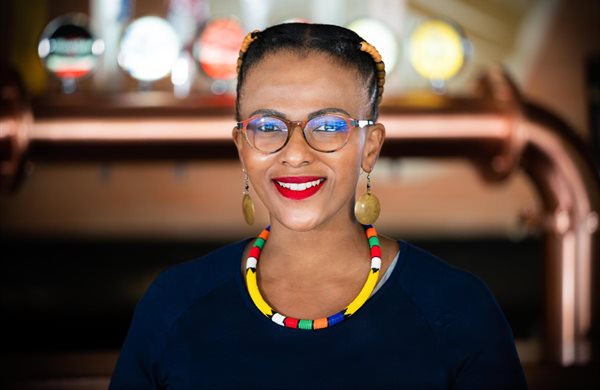
Subscribe & Follow
Jobs
- Customer Service (UK Company) Work from Home Work From Home
- Finance Manager Cape Town
Hard lessons learned during SA's alcohol prohibition

As we (re)start the long journey to economic recovery for both our sector and country, marred by unrest and looting on a never-before-seen scale, the affirmation that both lives and livelihoods matter in the country’s Covid-19 response rings truer than ever.
While parts of the global population are now emerging from the pandemic vaccinated and ready to work, our vaccination rollout programme is moving at a slow pace. Now we have to live in fear of yet another wave, which will result in more job losses.
Over the course of 22 weeks of prohibited alcohol sales, all packed into four alcohol bans, the lessons we have learned need to be thoroughly unpacked if we are ever going to understand the unintended consequences of prohibition. From over 233,000 jobs being put at risk, to R10,2bn being lost in excise tax, to R60,7bn GDP lost and R11,3bn fiscal loss to an entrenched illicit alcohol trade – one can’t help but reflect on what each ban has taught us.
Lesson 1: ‘With immediate effect’ is just plain irresponsible
Considering over one million livelihoods are put on the chopping block whenever a ban is instituted, it shows an incredible disregard for the people that need this industry to put food on their families’ tables. Doesn’t the National Command Council (NCC) realise that the process of making beer starts from barley farming to sip? There are so many parts of our extensive value chain working carefully in unison to deliver some of South Africa’s most loved beers.
A forewarning is something we have been calling for from the beginning.
Lesson 2: We need more evidence-based decision-making
As an industry, we consistently outlined our legitimate concerns around the science behind the implementation of alcohol bans. To date, we still have not been provided the opportunity to engage with the data used to support these findings. At no stage during the past 18 months has government shared the science that justifies their decisions.
In a world of misinformation, scientific advice should be applied to every aspect of society, so that individuals can make informed decisions based on the best evidence available at the time. Our world should be ruled by facts rather than myth.
Lesson 3: Prohibition criminality
Banning alcohol sales does not remove demand – instead, it places the market into the hands of criminals, increasing illicit trade in alcohol. Illicit trades in over R13bn a year and results in annual tax losses in excess of R6bn. The ban has offered criminals an unparalleled opportunity to grow their illicit foothold on the market.
Prohibition diverts law enforcement resources during this indefinite lockdown. The simple fact is that telling someone they cannot have something only makes them want it even more. But at what cost?
Lesson 4: Be part of the solution
Responsibility has always been at the heart of our brand at SAB. We want to be part of a responsible solution in partnership with government and all industry stakeholders. We have proactively produced a comprehensive plan that addresses the challenges of combatting the spread of the virus while ensuring responsible alcohol consumption.
The industry at large is fully committed to being a joint part of the solution, and investing in targeted programmes that address the harmful use of alcohol by the minority of our citizens. Our plea to the government is to focus on increased enforcement and visibility, as we saw in lockdown Level 5 and 4, coupled by transparency through meaningful engagement.
As an organisation we’re also committed to assisting with speeding up the vaccination rollout. Thousands of our eligible employees are receiving their vaccines at our pop-up vaccination sites located at our premises all over the country.
So where to from here?
The regulatory position taken towards alcohol in South Africa has definitely been on the extreme end of the spectrum. This is especially true when compared to lockdown measures put in place by other countries (both on the continent and globally).
In some countries where bans were instituted, the governments quickly reversed them when it became clear that the unintended consequences were worse than the initial perceived threats. These consequences included spikes in illicit alcohol trade and deaths related to the consumption of unsafe illicit substances.
A measured and considered approach around alcohol during Covid-19 is both possible and viable, but for now, we will have to educate ourselves on the risks while we wait for the lockdown regulations to be revised or for South Africa to enter a lower stage of the lockdown.
A total ban is unrealistic. There are solutions to our problems, and it does not have to jeopardise our economy and our people. The key is to engage with one another and work together to find an equitable solution.
Together we need to do all we can to focus the power of our value chain on global socio-economic recovery. In normal times, beer is a formidable engine of economic growth; in a post-Covid world, it can be a critical driver of economic recovery.
Now more than ever, it is time for all of us to reset, recover and rebuild because we are all in it together.
















